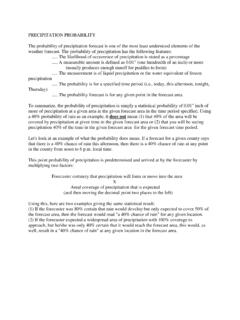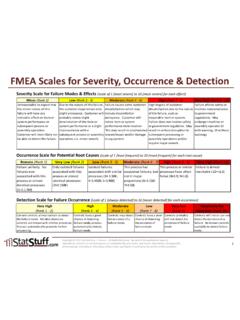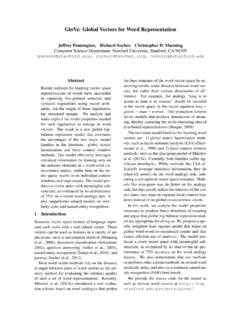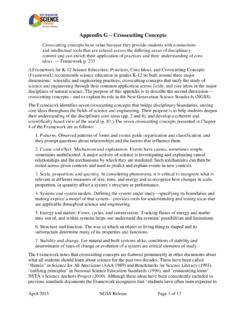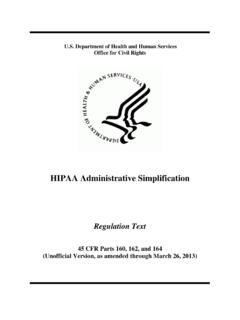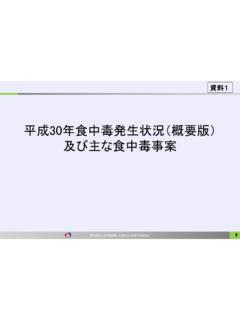Transcription of Teacher misconduct: the prohibition of teachers
1 Teacher misconduct: the prohibition of teachers Advice on factors relating to decisions leading to the prohibition of teachers from the teaching profession February 2022 2 Contents 1. Introduction 3 About this advice 3 Who this advice is for 4 2. The regulatory system 4 3. Role of the Disclosure and Barring Service ( DBS ) 6 4. What is a prohibition order and interim prohibition order? 7 5. Panel decision-making criteria 7 (i) Is the panel satisfied that the facts of the case have been proved? 8 (ii) Has there been: a) unacceptable professional conduct ; b) conduct that may bring the profession into disrepute ; or c) conviction, at any time, of a relevant offence ?
2 9 (iii) Is a prohibition order appropriate? 14 Public interest 14 Behaviour 15 Mitigation 18 6. Panel recommendations on prohibition 18 7. Panel recommendations on review period 19 8. Decisions on prohibition 20 9. Application for a prohibition order to be reviewed and set aside 21 10. Appeals 22 Annex A - Interim prohibition orders (IPO) 23 3 1. Introduction About this advice This advice sets out the arrangements for the regulatory system relating to teacher1 misconduct which operates within a legislative framework which came into force on 1 April 2012. These arrangements are operated by the Teaching Regulation Agency (the TRA), an executive agency of the Department for Education, which acts on behalf of the Secretary of State for Education as regulator of the teaching profession.
3 This advice sets out the factors to be considered by a professional conduct panel (panel)2, which is an independent panel convened by the TRA for the purpose of the regulation of Teacher misconduct. The primary purpose of the advice is to inform panel considerations, findings and recommendations to the Secretary of State whether to impose a prohibition order on a Teacher . A senior official, who acts as the decision maker on behalf of the Secretary of State, also uses this advice when considering the panel s recommendation and in deciding whether to make or set aside a prohibition order. In using this advice, panel members are acting in a judicial capacity and are obliged to exercise their own judgment in making decisions, within the framework set out below by the Department for Education.
4 The advice provides information about the types of behaviours and actions that would likely cross the threshold between acceptable and unacceptable conduct (see Section 5(ii)) for a person working in the teaching profession. The types of behaviours and actions described cannot be exhaustive, so whilst panels and decision makers will use this advice to help achieve a level of consistency in considering cases, there will likely be circumstances where behaviours and/or actions not referenced in the advice are considered to have crossed the unacceptable threshold. The advice sets out how panel members should consider how any mitigation presented by the Teacher should be weighed alongside any finding of misconduct. This advice complements other departmental advice relating to the regulation of the teaching profession, that can be obtained from the Teacher misconduct section of the website.
5 1 A reference to a Teacher is to be interpreted in accordance with the definition in regulation 2 of The teachers Disciplinary (England) Regulations 2012. It should be noted that this definition is not limited to qualified teachers . 2 Regulation 6 of the teachers Disciplinary (England) Regulations 2012 as amended by The teachers Disciplinary (Amendment) (England) Regulations 2014. 4 Who this advice is for Panel members3: to inform their decision-making process at panel hearings and meetings. Employers4 of teachers (including agencies) and anyone considering making a referral: to help them make a judgment about whether an allegation of Teacher misconduct is sufficiently serious to refer the matter to the TRA. teachers : to help them understand the potential consequences of specific allegations of misconduct including the types of behaviours and actions that would likely cross the threshold between acceptable and unacceptable conduct for a person working in the teaching profession.
6 teachers and panel witnesses: who attend a panel hearing to help inform them about the decision-making process followed. Teacher representatives: if a Teacher is represented, to support the preparation of the Teacher s case and when presenting their case at a panel hearing. TRA: to support the TRA, and lawyers who advise them, in their investigations of allegations against teachers and determination of whether a case should be investigated and proceed to a panel hearing or meeting. Decision maker: to support their decision-making when considering a panel s recommendation and deciding whether to make or set aside a prohibition order. The public: to provide reassurance and transparency about the decision-making process that will be followed when it is alleged teachers may be guilty of committing serious misconduct.
7 2. The regulatory system 1. teachers are the single most important factor in a child s education who act in loco parentis . The overwhelming majority are highly competent and effective, and never engage in any form of misconduct. Headteachers and governing bodies are responsible for managing teachers in relation to their competence and conduct and 3 In addition to t he advice contained within this document, panel members receiv e bespoke training that covers a panel s role and responsibili ties, consideration of evidence, decision-making factors and child safeguardin g, including assessing risk of harm. 4 The Department for Education s Keeping children safe in education (KCSIE) statutory guidance and Staffing and Employment Advice for Schools provides further clarificatio n to employers of teachers about the duty to consider referring serious cases of misconduct to the TRA.
8 5 for taking action to address underperformance and misconduct in their schools. The department s statutory guidance Keeping children safe in education (KCSIE) makes clear that safeguarding and promoting the welfare of children is everyone s responsibility, and that all staff in schools and colleges have a responsibility to provide a safe environment in which children can learn. 2. The Education Act 2002, as amended by the Education Act 2011, gives responsibility to the Secretary of State to regulate Teacher misconduct and to hold a list of teachers who have been prohibited from teaching. The TRA operates the regulatory system on the Secretary of State s behalf and references to the TRA in this advice should be read accordingly.
9 The teachers Disciplinary (England) Regulations 2012 ( the Regulations ) as amended5 provide specific and detailed information about how the system should operate. 3. The key features of the regulatory system are that: The arrangements apply to anyone undertaking teaching work, as defined in the Regulations6, at any of the following institutions in England: all schools7; sixth form colleges; relevant youth accommodation; and children s homes. The TRA will only consider allegations of the most serious cases of misconduct, in order to make a decision about whether a Teacher should be prohibited from teaching work. Other matters, including all cases of incompetence, should be dealt with locally by employers. The Secretary of State has the power to make prohibition orders and interim prohibition orders which prevent a Teacher from carrying out teaching work there are no other types of sanction available to the Secretary of State.
10 Where a Teacher has been dismissed for serious misconduct or would have been dismissed had they not resigned, their employer (including an agency) has a statutory duty8 to consider whether to refer the case to the TRA. The employer should use the advice in this document to help make a judgment as to whether, on the grounds that a prohibition order may be appropriate, it is necessary to refer. Where the employer is in any doubt, a referral should be made. All referrals should be made promptly. 5 The teachers Disciplinary (Amendment) (England) Regulations 2014 6 Regulation 3 of the teachers Disciplinary (England) Regulations 2012 7 Maintained schools (including maintained nursery schools and pupil referral units), non-maintained special schools, and independent schools (including academies, 16-19 academies, free schools, and alternative provision academies) 8 141D of the Education Act 2002 (as amended by the Education Act 2011) 6 The police, the Disclosure and Barring Service (DBS), other regulators, members of the public and any other interested organisations may also refer cases.










